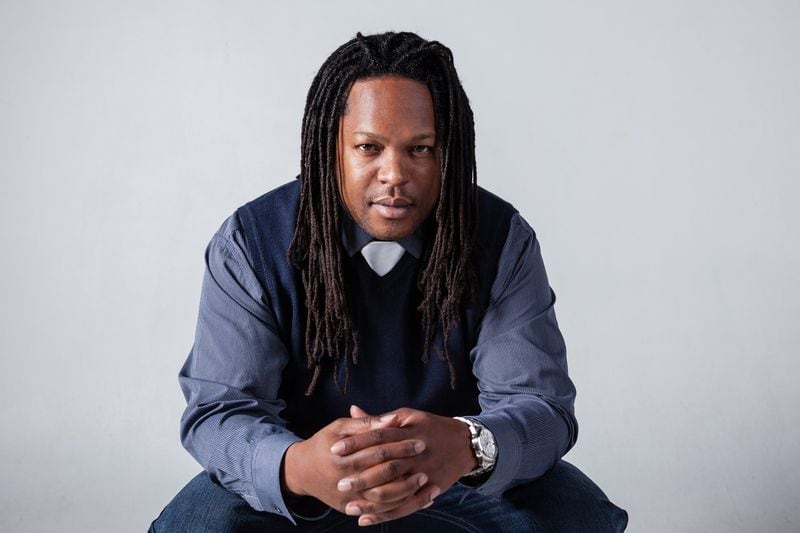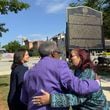One word.
Perhaps that's all it may have taken to keep Shaka Senghor away from crime and prison.
If someone had just said that one word - and he had listened.
"Believe," said Senghor, lecturer and author of "Writing My Wrongs: Life, Death and Redemption in an American Prison."Believe in yourself. Believe in your self-worth. Believe in your potential. I think if I had heard that word, I would have had a sense of what my true purpose was and believed in who I am as a human being. I think that would have drastically changed my outcomes."
Credit: Shelia Poole
Credit: Shelia Poole
In 1992, the Michigan-born Senghor was sent to prison for second-degree murder. Today, he is in demand as an advocate for justice reform and speaks to educators, faith groups and youth around the nation.
He's received fellowships at the MIT Media Lab and the Kellogg Foundation and invitations to speak at TED and the Aspen Ideas Festival.
Senghor will talk about his life and sign copies of his book at 7 p.m. March 11 at First Baptist Church Decatur, 308 Clairemont Ave. as part of the Georgia Center for the Book.
In his book, Senghor talks about how he felt let down by his parents, although he maintained a close relationship with his father. His family, as so often happens, became the streets. He became a player in the city's drug trade and ended up in prison.
For him, though, prison wasn't the end, but the beginning.
It took a lot of time - 19 years behind bars, seven in solitary confinement.
It took a certain mindset to survive prison, around him there were beatings, rapes and inmates filled with anger and hopelessness.
African-Americans are incarcerated at nearly six times the rate of whites, according to the NAACP. From 1980 to 2008, African Americans constituted nearly 1 million of the total 2.3 million inmates in prison.
"It's a big warehousing system," said Senghor. "We incarcerate more people than anybody else in the world, yet we fail to ensure that when men and women get out of prisons that they're prepared to re-enter society."
They are released without the skills or education to make it in the world. It's hard to find work with a record. It's difficult to find housing. Also crucial are mental health services, he said.
Those obstacles create a sense of hopelessness and "when you feel there are no other options, you return to the streets," Senghor said.
The solutions start in homes, schools and churches.
One of the things that he found troubling was that when he left prison, one of the first schools he went to as a mentor was in worse physical shape than prison.
"That says a lot about our education system," he said. "We as a society care more about incarcerating people that educating people."
His perspective started to change after reading a book about Malcolm X and receiving a letter from a member of his victim's family. The woman forgave him and he started forgiving himself.
He also looked at his son, who was getting older, and realized he needed to do something meaningful with his life.
"I realized that my voice is a valuable voice for these young kids growing up," he said. "They need someone who is going to be an advocate for them, who can mentor them and take time to listen to them."
What better person that someone who has walked in their shoes and once lived on the same streets?
He's a strong voice for sentencing reform and more help for those with mental health issues and substance abuse.
He has experienced the cost of prison on his community and his family.
Whole families have been destabilized by the incarceration of one or both parents.
Since his release, for instance, he has tried to rebuild his relationship with his two oldest children, both of whom are young adults.
Relations with his son, he said, are "very strained. It's hard to just reinsert yourself in somebody's life when they've done nearly two decades without you."
He has a better relationship with his oldest daughter, although it's still a work in progress.







